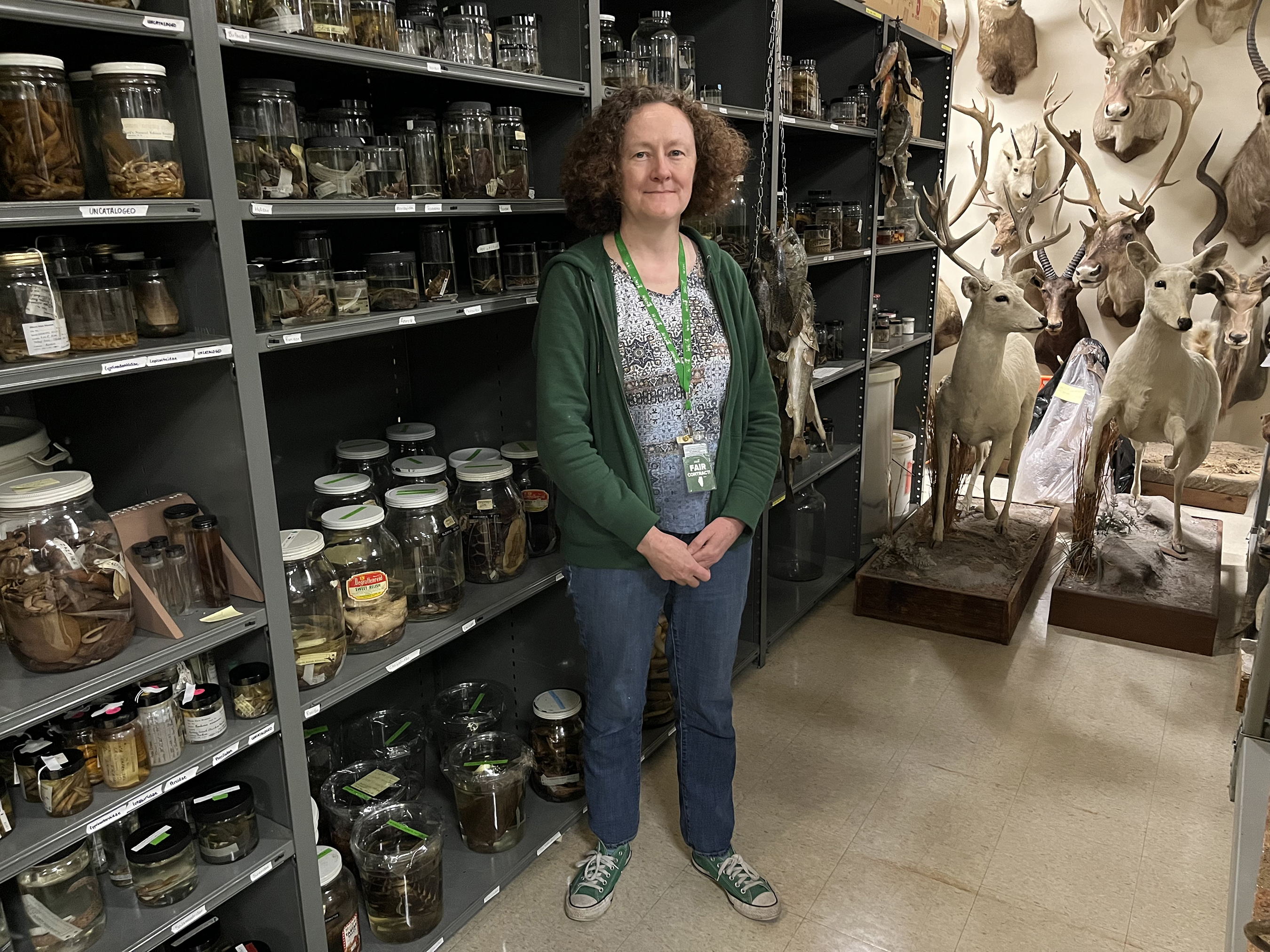Local 1019 member’s startling discovery spurs new research
 Dr. Meredith Mahoney, a zoologist at the Illinois State Museum in Springfield and a steward for AFSCME Local 1019, has made a surprising discovery which became a launchpad for significant research into an invasive insect.
Dr. Meredith Mahoney, a zoologist at the Illinois State Museum in Springfield and a steward for AFSCME Local 1019, has made a surprising discovery which became a launchpad for significant research into an invasive insect.
One day in 2022, Mahoney noticed her normally sleepy cat, Darcy, batting around an insect on the floor. She had to take a closer look.
“It was this big bug,” Mahoney said. “It had a very striking appearance, it was all black and had this pattern around the edge of its body.”
Mahoney knew what it was: A South American insect called a triatomine—more commonly known as a kissing bug. Kissing bugs are a menace to communities in Latin America. They hunt at night, seeking out the faces of warm mammals. Once there, they clamp down and suck their blood.
What’s worse, they can transmit a parasite that causes Chagas disease, which, in its mildest form, causes fever, headaches and swelling, but can advance to cause heart disease, digestive complications and possibly nerve damage. In rare cases, the disease can be lethal.
Until now, kissing bugs weren’t widely known to be present in the generally colder climates of North America. But a warming planet could be creating new habitat for the species to migrate north.
Mahoney’s discovery led to a joint project between researchers at Southern Illinois University-Edwardsville and St. Louis University. They teamed up to study where and how often the bugs have been found in Illinois and Missouri.
“We used all these available resources to try to build up an idea of where the bugs are, and now we can understand in the future if the disease is actually present in Illinois and Missouri,” Mahoney said. “There are some documented specimens in Missouri where the disease has been found. Now, this research is the baseline.”
The Illinois State Museum’s collections—which are cataloged and maintained by members of AFSCME Local 1019—proved to be a valuable resource for the research.
“We can use museum collections like the ones here at the state museum to understand a lot of modern problems,” Mahoney said. “We learned that we have a lot of other kissing bugs in our collection. We learned we already had some specimens in the area. So museum collections can be of interest to human life, health and medicine as well. When we keep the specimens in our collection, they have the ability to answer questions in the future.”
While they do not currently pose a major threat, Mahoney advised anyone who finds a kissing bug in their home to put it in a sealed container, freeze it, and report the contact to the Illinois Department of Public Health.



